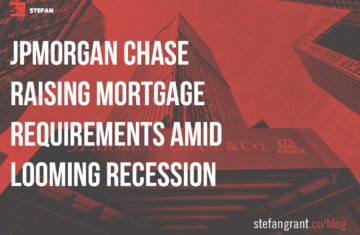 The U.S. Economy is currently in shambles due to the COVID-19 and the housing market hasn’t remained unaffected. Banks & lenders are tightening their requirements to purchase a home and JPMorgan Chase is one of many doing just that.
The U.S. Economy is currently in shambles due to the COVID-19 and the housing market hasn’t remained unaffected. Banks & lenders are tightening their requirements to purchase a home and JPMorgan Chase is one of many doing just that.
Beginning on Tuesday April 14th, 2020, JPMorgan Chase, the country’s largest lender based on assets & the 4th largest mortgage lender in 2019 will now be requiring a credit score of 700 & at least a down payment of 20% of the home’s current market value.
“Due to economic uncertainty, we are making temporary changes that will allow us to more closely focus on our existing customers” JPMorgan’s Chief Marketing Officer Amy Bonitatibus told Reuters.
While this may sound like bad news, it actually might not be. This soon-to-be enacted and temporary policy will not affect people with current JPMorgan Chase mortgages and it also will not affect low-middle income buyers with at least a 620 credit score and a 3% down payment who would qualify for their “DreaMaker” program.
This change was inspired by various circumstances, notably the record rise in homeowners looking to refinance. With many of JPMorgan’s loan officers working from home and being overwhelmed with number refinances, people looking to take advantage of record low interest rates, and millions of people now out of work, this will help reduce their exposure and mitigate lending risk in the wake of the recent coronavirus outbreak.
What does this mean for you? While there are still opportunities to buy a home via various methods and other loan programs, many other banks and lenders could be looking to follow suit. For those of you who had been saving money prior to the COVID-19 pandemic, this will present various opportunities as things shift rapidly from the seller’s market we’ve known these past few years to a buyer’s market.
The National Association of Realtors predicts a 10% drop in home sales compared to this time last year. Many properties will be being sold at a massive discount and many already are. In the Miami commercial real estate market, entire portfolios are already being listed on the market for a fraction of their worth. Residential real estate is likely to follow suit, albeit likely not as dramatically.




